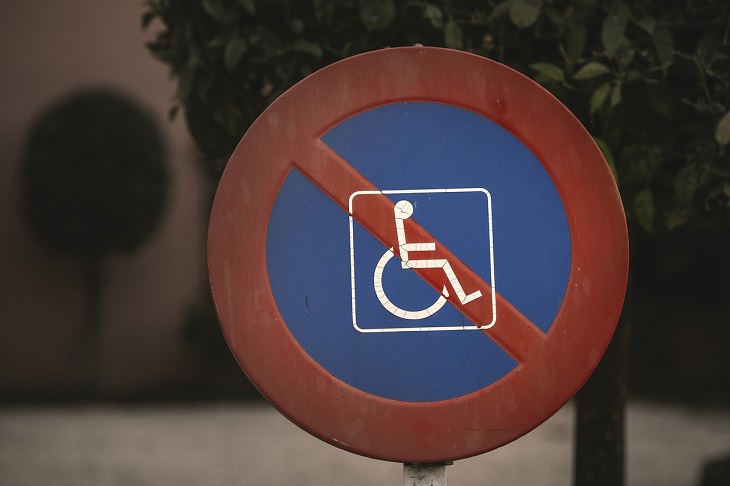As college and university campuses strive for inclusivity and accessibility, ensuring convenient and appropriate parking for individuals with disabilities is a critical aspect of creating an accommodating environment. Handicap parking on college campuses in the United States plays a pivotal role in providing equal opportunities for education and campus engagement. Today we’ll take a closer look at handicap parking regulations, policies, and resources available on US college and university campuses. Whether you’re looking for more information on handicap parking regulations in Texas universities, accessible parking on California college campuses, or disability parking permits for New York universities, this is a great place to start!
Legal Framework: ADA Compliance
The Americans with Disabilities Act (ADA) is the federal legislation that mandates equal opportunities for individuals with disabilities in various aspects of public life, including education. When it comes to parking on college campuses, ADA outlines specific requirements for handicap parking spaces. These regulations cover factors such as the number of accessible spaces, their location, signage, and the accessibility features of the spaces themselves.
Colleges and universities across the US are required to adhere to ADA standards, which may include providing a minimum number of accessible parking spaces based on the total parking capacity and ensuring these spaces are conveniently located near building entrances.
State-Specific Regulations
The general regulations for disabled parking are similar across college and university campuses nationwide – ADA compliance for parking in Illinois colleges is the same as that for disabled parking spaces Pennsylvania university grounds, and so on! However, in addition to federal ADA guidelines, individual states may have their own specific regulations related to handicap parking.
It’s crucial for students, faculty, and visitors to familiarize themselves with the specific rules in the state where the campus is located. State regulations may address issues such as the issuance of disability parking permits, eligibility criteria, and fines for violations. Handicap parking fines at Michigan university campuses may differ from those doled out for breaking handicap parking rules on Florida college campuses, for example.
Obtaining Disability Parking Permits
Students and faculty members with disabilities often need to obtain disability parking permits to access designated parking spaces on college campuses. The process for obtaining a permit varies by state but typically involves submitting documentation of the disability to the appropriate state agency (more specific info on this below!).
Once approved, individuals with disability parking permits may have access to designated handicap parking spaces on campus, providing them with greater convenience and ensuring that they can participate fully in campus life.

Campus-Specific Policies
While there are overarching federal and state regulations, individual college campuses may have their own specific policies and procedures regarding handicap parking. It is essential for students and faculty to be aware of these campus-specific regulations, as they may include additional accommodations or resources beyond the minimum requirements outlined by ADA and state laws.
Campus policies may address issues such as visitor parking for individuals with disabilities, temporary handicap parking permits, and the process for appealing parking violations.
Design and Accessibility Features
Beyond the number and location of handicap parking spaces, the design and accessibility features of these spaces are crucial to ensuring full inclusivity. ADA provides detailed guidelines for the design of accessible parking spaces, including the width of the space, the adjacent access aisle, and the slope of the ground.
Colleges and universities should regularly assess and update their parking facilities to ensure they meet these standards. This may include providing additional features such as curb cuts, ramps, and pathways to ensure that individuals with mobility challenges can navigate the campus easily.
Campus Transportation Services
In some cases, college campuses offer specialized transportation services for individuals with disabilities. This may include shuttle services equipped with wheelchair ramps or other accommodations. Students and faculty are encouraged to inquire about such services, which can provide an alternative to traditional parking and contribute to a more seamless campus experience for individuals with disabilities.
Enforcement and Fines
Enforcement of handicap parking regulations is a crucial aspect of ensuring that the designated spaces are available for those who truly need them. Colleges and universities typically have their own enforcement mechanisms, which may include campus police or security personnel. Understanding the consequences of violating handicap parking regulations, including fines and potential towing, is essential for maintaining the integrity of the system.
How to Get a Disabled Parking Permit as a College Student
College students seeking a handicap parking permit must follow a specific process to ensure accessibility on campus. Typically, the first step involves obtaining the necessary documentation from a healthcare professional, such as a physician or a medical specialist, certifying the student’s disability and its impact on the individual’s mobility.
Once this documentation is secured, students can then submit an application to their state’s DMV or relevant agency. The application will usually require personal information, details about the disability, and the healthcare professional’s certification. Upon approval, the student will be issued a disability parking permit, commonly in the form of a placard or license plate, which allows them to access designated handicap parking spaces on college and university campuses.
It’s important for students to be aware of both federal ADA guidelines and any state-specific regulations that may apply to ensure a smooth and legally compliant application process.
***
Creating a truly inclusive and accessible campus environment involves addressing the needs of individuals with disabilities in all aspects of campus life, including parking. By understanding the legal framework, state-specific regulations, and campus policies related to handicap parking, students, faculty, and visitors can contribute to a more inclusive and accommodating campus community.
Colleges and universities play a pivotal role in fostering an environment that embraces diversity and supports the needs of all individuals. As we move forward, continued attention to and improvement of handicap parking facilities will ensure that higher education remains accessible to everyone, regardless of their physical abilities.
Looking for more insight on disabled parking as a student throughout the US? Whether you’re searching for info on accessible parking permit application at Ohio colleges, university disability parking accommodations in Georgia, parking for students with disabilities in North Carolina colleges, or anything in between, Dr Handicap has got you covered with our state-based information. Check out the site today for more!
Featured image by Matthis Volquardsen on Pexels

